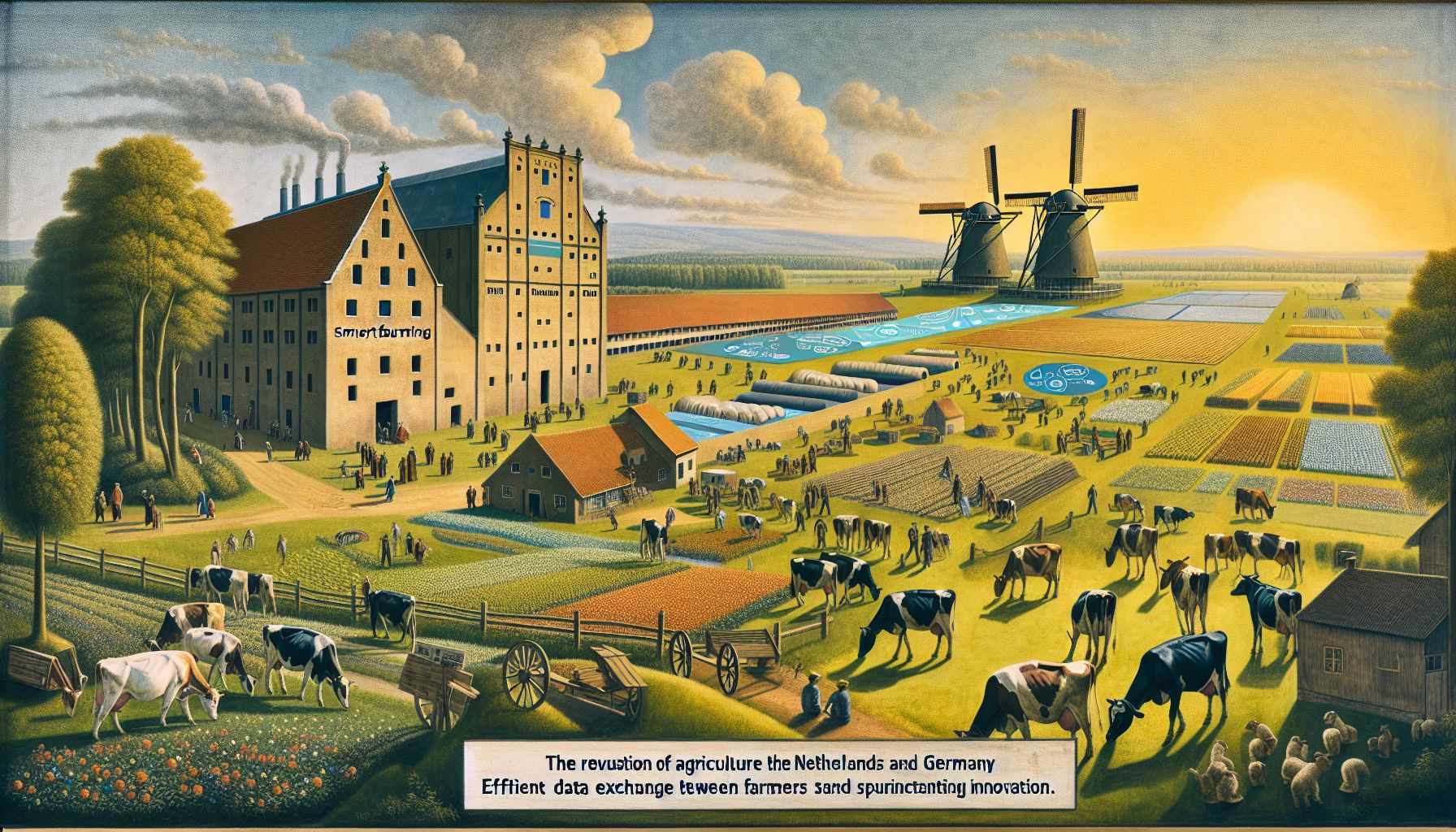Data-Driven Agriculture Gains Ground in Europe

Utrecht, Monday, 29 July 2024.
The Smart Farming initiative, led by European Digital Innovation Hubs, is revolutionizing agriculture in the Netherlands and Germany. Focusing on the dairy sector, it promotes efficient data exchange between farmers, enhancing productivity and innovation in the face of environmental challenges.
Benefits of Smart Farming
The primary advantage of the Smart Farming initiative is its ability to optimize agricultural efficiency and resource usage. By leveraging advanced technologies such as drones, data analytics, and sensors, farmers can gain real-time insights into their operations. This data-driven approach enables them to make informed decisions, reduce waste, and improve yield despite environmental uncertainties. The initiative’s focus on authorized and reliable data exchange ensures that sensitive information is protected while promoting transparency and collaboration among farmers.
How Smart Farming Works
Smart Farming employs a variety of technologies to collect and analyze data from agricultural activities. Drones provide aerial imagery to monitor crop health and detect issues early. Sensors placed in fields measure soil moisture, temperature, and other critical factors, feeding this data into a centralized system. Farmers can then visualize this information through user-friendly dashboards, allowing them to adjust practices such as irrigation, fertilization, and planting schedules in real time. This integrated approach not only enhances productivity but also contributes to sustainable farming practices by minimizing resource use.
Key Players and Locations
The Smart Farming initiative is spearheaded by the European Digital Innovation Hubs Network, with significant contributions from various stakeholders in the agrifood sector. The initiative is coordinated by Van Den Akker Evert, based in Den Haag, Netherlands[1]. The focus is currently on the dairy sector, but the initiative also aims to expand into other areas of agrifood, including arable and horticulture farming. Additionally, companies like AgTech News, headquartered in Dover, Delaware, play a crucial role in advancing agricultural technology and supporting smart farming practices[2].
Future Prospects and Expansion
As the Smart Farming initiative gains traction, its scope is expected to broaden, incorporating more sectors and regions. The success in the Netherlands and Germany serves as a model for other European countries looking to modernize their agricultural practices. Innovative solutions such as Precision AI’s Stratus AirSprayer™, which reduces spray drift and enhances productivity, are examples of how technology can revolutionize farming[3]. The ongoing development and adoption of smart farming technologies promise to make agriculture more resilient, efficient, and sustainable, ultimately contributing to global food security.

